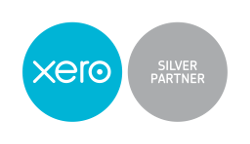The definition of self-employment is working for yourself as a freelancer, or owning your own business. Entrepreneurship, on the other hand, is the action of setting up a business taking on any financial risk to hopefully make a profit.
What are the distinctions between self-employment and entrepreneurship? Find out more here…
The Self-Employed Approach
Self-employment startup requires financing put in place beforehand, with a business plan created, and a name to be registered and insured. Deciding how your business will be structured and getting a business bank account will be followed by marketing strategies to attract initial paying customers.
You have people working for you who you hire – any targets are set by you and you’re solely responsible for the results. If you’re absent from the business with holidays or sickness then work may significantly decrease. And retirement or death will most likely result in the folding of the business completely.
Self-employed individuals receive payments directly from their clients by cash, cheque, or electronic payment. Self-employed contractors send invoices for work carried out and get paid by the due date.
Reservation is one of the most marked differences of the self-employed. Change is concerning and risks rarely taken. But you do need to be flexible, motivated, 100% available, and give customers your full attention.
There are few requirements and regulations for self-employment. Registering with HMRC and filling in an annual tax return are two of these necessities.
The Entrepreneurship Mindset
As an entrepreneur, you have people working alongside you – and your team work together to achieve the company goals. If you as a business owner take a vacation, become ill, or pass away, the operation will continue to operate as it’s not solely reliant on the business owner.
Entrepreneurs tend to be global thinkers and have the desire to explore new opportunities, and take risks – the greater the danger the higher the returns. This large-scale approach enables the entrepreneur to identify clients needs within the international marketplace.
Delegation is one of the key tasks of an entrepreneur to ensure the work gets done quickly and effectively. Economic success is often attributed to entrepreneurship that creates benefits and brings in additional wealth.
Entrepreneurs are paid by taking a share of the profits from the business – derived from revenue obtained from clients and customers. Entrepreneurs must handle a wide range of business requirements including business registration, insurance obligations, and filing of taxes.
The Accounting Services
When you need answers to meeting your tax requirements and account management – outsourced bookkeeping is a cost-effective option. You’ll be guaranteed year-ending accounting obligations and taxation compliance will be correct in every detail.
Payroll services for a small business are readily available and all aspects of income and tax deductions will be carried out accurately and effectively. Specialist accountants will ensure full agreement with HMRC regulations.
If you want a personal tax advisor that can be arranged too. Bespoke outsourced services will cater to your every need – from business startups to established entrepreneurship. You’ll be free to develop your business further whilst your dedicated accountant takes care of managing your account and dealing with the relevant authorities on your behalf.



0 Comments